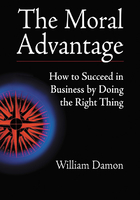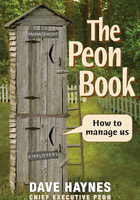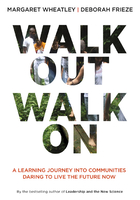Foreword
by Rebecca Solnit
Marisa Handler's luminous tale of coming to activism issues an invitation to read your own life as an awakening. You can either examine your own past to realize that you have been educated and molded, or you can decide to live your life as an adventure and a pilgrimage toward a better world, moving rather than standing still, changing rather than settling. For the point of her book is not that she is extraordinary, but that ordinary life throws all of us fodder and curveballs that invite us to learn, to commit, to keep traveling, to keep discovering. She is exceptional in that she sought as much as she stumbled across the situations and conversations that shaped her journey and her coming of age, and that her pilgrimage traverses four continents, and that she made so much of what she found. Still, the same developments could have taken place in the life of someone who stayed home in Oklahoma or Manitoba and paid attention there to the politics of race, money, foreign policy, war and peace, the troubles and demands that are everywhere. But those continents do make the story more exciting; she is fortunate to have had a global cast of characters play a part in her awakening to problems that are themselves often global, though she made her own fortune in choosing to accept the challenges posed along each step of the way.
For these are the essential steps toward being an activist: to see injustice, to do something about it, to be willing to risk, to be unpopular or out of step, to change your life. It's a challenge that she accepts almost as an inevitability on the playground in the first pages of Loyal to the Sky and that only later brings her joy and allies. So many, too many, of us either shrug off these pangs of conscience or wring our hands, believing that we can do nothing about them. Marisa Handler shows hope is both possible and justified. Perhaps the one thing I missed in this book is the (wildly encouraging) background that many of the political actions she describes from within, as a participant, have changed the world. The Free Trade Area of the Americas began to crumble that week in Florida and is now in shambles. Nepal's popular uprising in the spring of 2006 brought democracy back to the country. Legislation on closing the School of the Americas in Fort Benning, Georgia, continues to gain support, and Latin American countries are withdrawing from its sinister training programs. You can change the world; you can accept the challenge injustice issues. It won't make your life easier, but it might make it worth living or let you live with yourself. And it might save someone's else life or help defend something larger than any single one of us—a culture, an ecosystem, a principle.
The book describes a series of conundrums and paradoxes— racism in the United States, the country that Handler's parents chose as the antithesis of apartheid-era South Africa; the mixed wonders and limits of the very different traditional cultures she encounters; the Gordian knot that is Israel and her own status as a Jew; the grassroots activists' achievement of necessary intervention, despite their aggravating pursuit of perfection. Maybe what I love most about the book is the grace with which she accepts these challenges—the challenge not just of being engaged but also of understanding and accepting the contradictions, impurities, and complications of each side, each possible position, and of not surrendering to indifference, ambivalence, or a quest for personal purity that makes alliance or action impossible. There's a wonderful passage in which she describes a struggle, this time inside herself, in Nepal: "I have my ideas. I love my ideas. I bask in them, cling to them, noisily impose them. And then I move beyond my bubble and they get wrecked. I grieve them. They really were beautiful, in their oblivious idealism, in their purity. Later I am grateful.… Life, it seems, pushes me ever wider, deeper, in an ongoing struggle to accommodate things I never imagined existed."
The most high-minded excuse for doing nothing is that the means with which to do it or the company you'd keep are flawed, the justification that you're keeping your hands clean (which is another way to say that you'll save only yourself). There are unambiguous realities in this book—the reality of poverty and of exploitation—but every situation still requires a tightrope-walker's balancing act: of pragmatism and idealism, of solidarity and independent-mindedness, of purposefulness and flexibility. And this is where the book becomes more than a conventional tale of an activist's evolution: spirituality, eventually in the clear form of Buddhism, enters in, and Buddhism itself offers the nonattachment, the recognition of ephemerality and the need to let go, the sense of life as an ever-moving river, that helps Marisa make sense out of all that she witnesses and does. At a very young age, she has gone very far. This book is an invitation to the rest of us to keep going.















